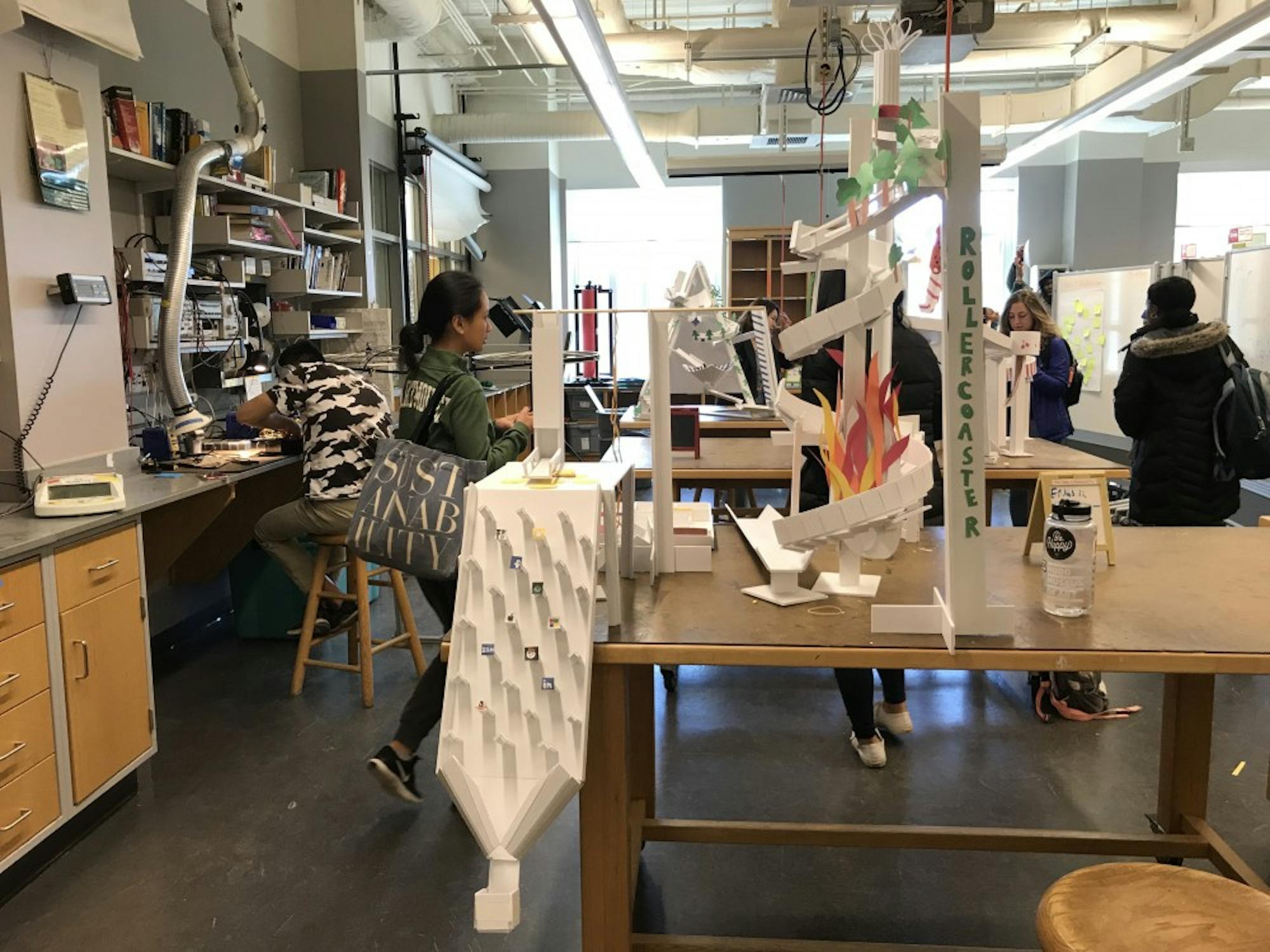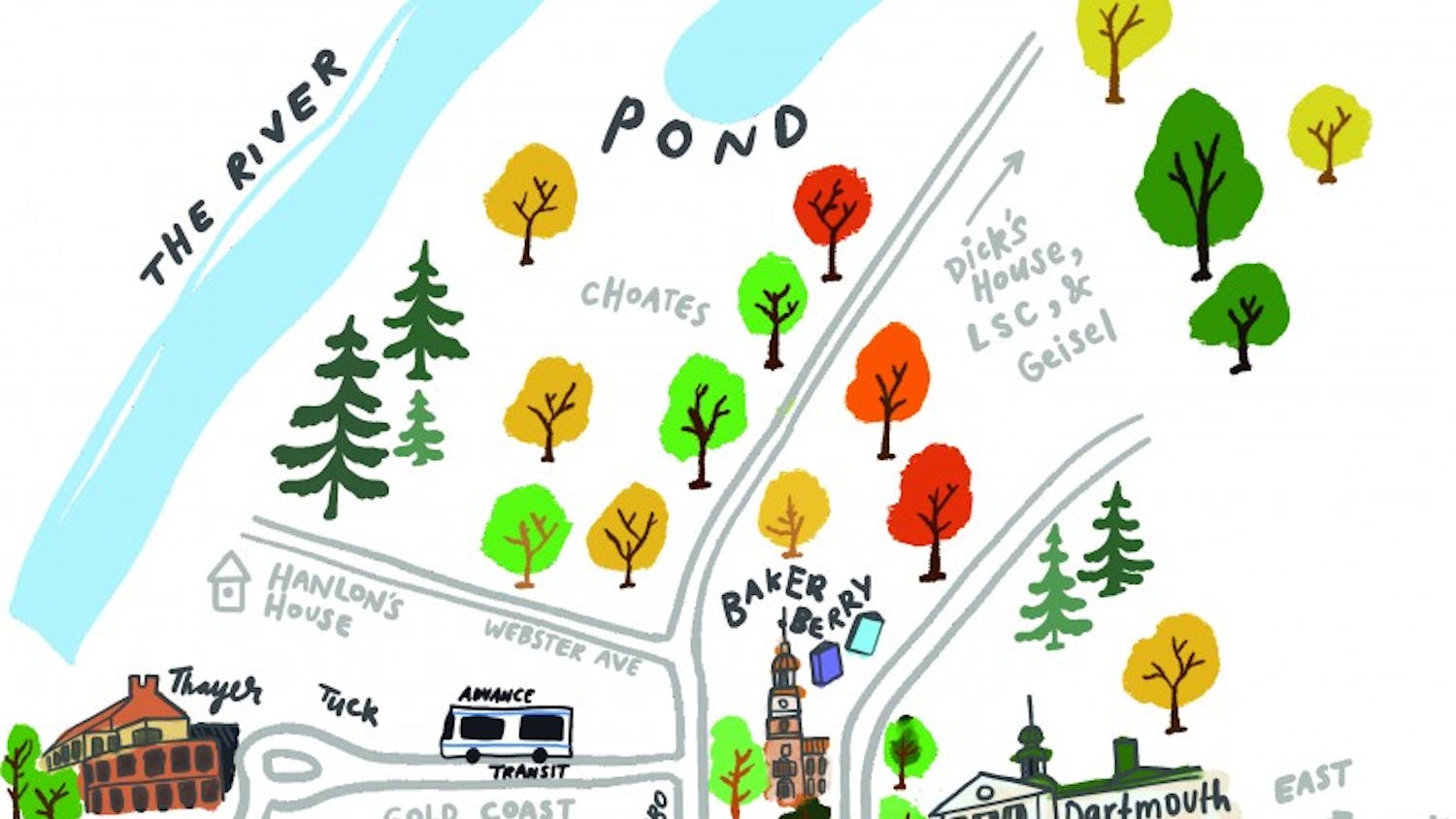As a new freshman class arrives to campus every year, students come bearing differing academic visions for their next four years at Dartmouth: some pre-med, some engineering, some humanities, others perhaps more focused on languages or social sciences. However, many — like me — come to Dartmouth their freshman fall knowing next to nothing about what to pursue academically or professionally. This can make choosing one’s first term of classes quite an endeavor.
Even as an incoming sophomore, I don’t yet have my academic pathways completely set in stone. However, over these past few terms, I did learn that there are some classes so quintessentially Dartmouth that it doesn’t hurt to put them on your radar to take over the next four years.
One such course, beloved by Dartmouth students of all majors, is ENGS 12, “Design Thinking.” Don’t be intimidated by the daunting engineering label, even if you might feel you’re as far from an engineering student as it gets. ENGS 12 is a collaborative, problem-solving course based on the design thinking process that challenges students to approach and tackle any problem creatively, whether it be building a roller coaster out of foam or solving income inequality on campus.
Olivia Nadworny ’22, who took ENGS 12 her freshman winter, described the class as one that everyone should take because of the skills one can gain from taking it.
“ENGS 12 is one of those classes that can be useful to any discipline because you learn critical thinking, teamwork and most of all, creativity,” Nadworny said. “The class really teaches you to find your own creativity through the design process, which you can truly apply to all parts of your life.”
Nadworny said that ENGS 12 also helped augment her personal growth as a Dartmouth student and gave her a perspective that would improve her overall academic experience.
Similar to the hands-on learning experience gained through ENGS 12, a project-based curriculum known as Social Impact Practicum offers courses across countless departments of the College, including environmental studies, anthropology, psychology and engineering. According to the Dartmouth Center for Social Impact, these classes provide experiential learning opportunities that connect Dartmouth students with community needs throughout the Upper Valley.
In other words, for course credit, Dartmouth students have the opportunity to complete real projects that immediately benefit local communities.
Beyond these interactive courses, there are, of course, countless lecture-based courses offered that are also quintessential Dartmouth experiences.
For example, PBPL 5, “Introduction to Public Policy”, is a course that many freshmen opt to take, particularly because it opens up a wide range of internship and career opportunities. One such opportunity is the Rockefeller Center’s First-Year Fellows program, an eight-week summer fellowship in Washington, D.C. at a public policy organization led by a Dartmouth alumnus.
Katherine Smith ’22, who was a First-Year Fellow this year, recounted her experience in PBPL 5 and how the course led her to intern for Sen. Kirsten Gillibrand ’88 (D-NY).
“For me, PBPL 5 showed me just how complicated public policymaking can be and that the reality is that getting anything passed at all is incredibly difficult,” Smith said.
Finally, while some classes at Dartmouth are solely lecture-based and others are purely hands-on, there are plenty of classes offered that provide a happy medium between the two. In fact, Humanities 1 & 2, a course series offered only to freshmen, provides the incoming class both the experience of participating in lecture settings and being part of a tight-knit, 16-person discussion group. Subject material in the Humanities sequence spans over a wide range of media, from classic works of literature to modern day paintings.
According to Kaj Johnson ’22, managing the balance between lectures and intimate classroom settings helped him gain a better understanding and appreciation for all of the material covered.
“The structure of Humanities 1 & 2 was something I found particularly unique and rewarding, because we were challenged by our professors to further our comprehension of works through deep and thorough discussion,” Johnson said.
Ida Claude ’22, who also took the Humanities 1 & 2 sequence, said that she would recommend the sequence to any student who wishes to dip a toe into Dartmouth’s extensive liberal arts offering. She said that this was especially helpful as a student undecided on her major.
A classroom experience at Dartmouth can look like so many different things. Although this article by no means covers a comprehensive list of classes that are must-takes at Dartmouth, it does, hopefully, put some classic Dartmouth ones on your radar. What I am sure all upperclassmen will recommend, though, is this: Try new subjects. Take challenging classes in disciplines you know you love. Ask others for guidance. Get out of your comfort zone. Freshman year, if anything, is the perfect time to explore the many incredible academic pathways that Dartmouth has to offer.
This article is a part of the 2019 Freshman Issue.




